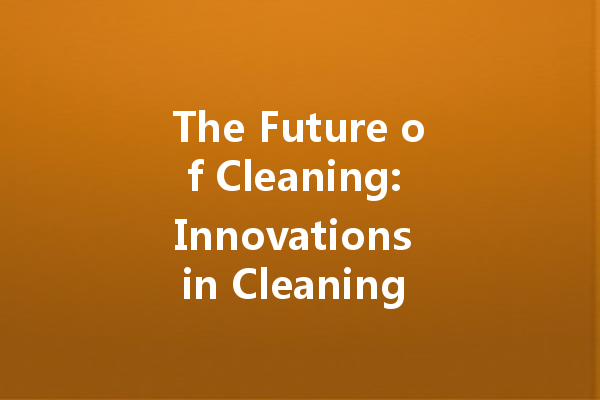Introduction
In an ever-evolving world, cleaning agents play a crucial role in maintaining hygiene and safety across various environments, from homes to commercial spaces. With the rise of environmental awareness among consumers and the ongoing fight against viruses and bacteria, the cleaning agent manufacturing industry is undergoing significant innovations. This article explores the latest trends and advancements within this vital sector and how they promise to shape the future of cleaning.
The Shift Toward Eco-Friendly Solutions
Consumer Demand for Sustainability
Today’s consumers are more environmentally conscious than ever before. This shift is pushing cleaning agents manufacturers to prioritize eco-friendly ingredients and sustainable practices. Biodegradable formulations and natural cleaning agents are gaining popularity as people seek effective yet environmentally responsible options. Manufacturers are racing to develop products that meet these consumer demands, including the use of plant-based ingredients and sustainable packaging.
Innovations in Formulation
Innovations in formulations are at the forefront of the cleaning agent industry. Manufacturers are leveraging advances in biotechnology to develop enzyme-based cleaning agents that are both effective and eco-friendly. These formulations can break down dirt and stains using natural enzymes, minimizing the need for harsh chemicals. This evolution not only enhances cleaning efficiency but also lessens the environmental impact of cleaning products.
Embracing Technology in Production
Automation for Efficiency
The integration of technology and automation in cleaning agent manufacturing is reshaping production processes. Automation improves efficiency, reduces labor costs, and minimizes human error in the manufacturing process. By employing automated systems, manufacturers can produce high-quality cleaning agents more consistently and at a faster pace, ultimately leading to lower prices for consumers.
Artificial Intelligence and Data Analytics
Manufacturers are also utilizing artificial intelligence (AI) and data analytics to streamline operations. With these technologies, companies can predict trends, manage inventory more effectively, and optimize production schedules based on real-time data. AI can even assist in formulating new cleaning agents by analyzing consumer preferences and suggesting new combinations of ingredients. This enhanced approach results in more effective products that meet the specific needs of the market.
The Importance of Non-Toxic Products
Growing Awareness of Health Risks
As people become increasingly aware of the potential health risks associated with traditional cleaning agents, the demand for non-toxic alternatives is surging. Manufacturers are responding by developing products that do not contain harmful chemicals, allergens, or irritants. This shift is especially crucial for households with children and pets, who may be more susceptible to the adverse effects of traditional cleaning products.

Regulatory Changes
Government regulations are also influencing the cleaning agent manufacturing landscape. As health and safety standards evolve, manufacturers are compelled to reformulate their products to comply with stricter regulations. This need drives innovation as companies seek to create safer and more effective cleaning agents that adhere to these new guidelines.
The Role of Packaging Innovations
Sustainable Packaging Solutions
Innovative packaging solutions are another aspect of evolution in the cleaning agent industry. Manufacturers are exploring sustainable materials for packaging that reduce plastic waste and promote recyclability. Refillable options, concentrated formulas, and eco-friendly materials are becoming standard practices to appeal to environmentally conscious consumers.
Smart Packaging Technologies
In addition to sustainability, smart packaging technologies are emerging. These packages may include QR codes that provide users with information about the product’s ingredients, usage instructions, and recycling tips. This transparency not only enhances the consumer’s experience but also fosters trust between brands and their customers.
Addressing Commercial Needs
Specialized Commercial Products
The demand for specialized cleaning products suited for various industries is on the rise. In sectors such as healthcare, hospitality, and food services, cleaning agents must meet stringent hygiene standards. Manufacturers are innovating to create specialized products that address the unique needs and challenges of these environments, ensuring that cleanliness and safety are maintained.
Cost-Effectiveness for Businesses
Future advancements in cleaning agent manufacturing will also focus on cost-effectiveness. By optimizing production processes and formulations, manufacturers will be able to offer cleaning agents at competitive prices without compromising on quality or efficacy. This is particularly important for businesses that aim to maintain high hygiene standards while managing operational costs.
Conclusion
The future of cleaning agent manufacturing is witnessing a remarkable transformation fueled by innovations in formulation, technology, and sustainability. As consumers demand more eco-friendly and non-toxic products, manufacturers are adapting to meet these needs. By embracing automation, AI, and smart packaging, the industry is set to provide effective solutions that promote safety, health, and cleanliness across all environments. With a strong emphasis on sustainability, the cleaning agent sector is paving the way for a cleaner, greener future.
As the industry evolves, consumers can look forward to cleaner products that align with their values, ensuring that both their homes and the planet are cared for.
